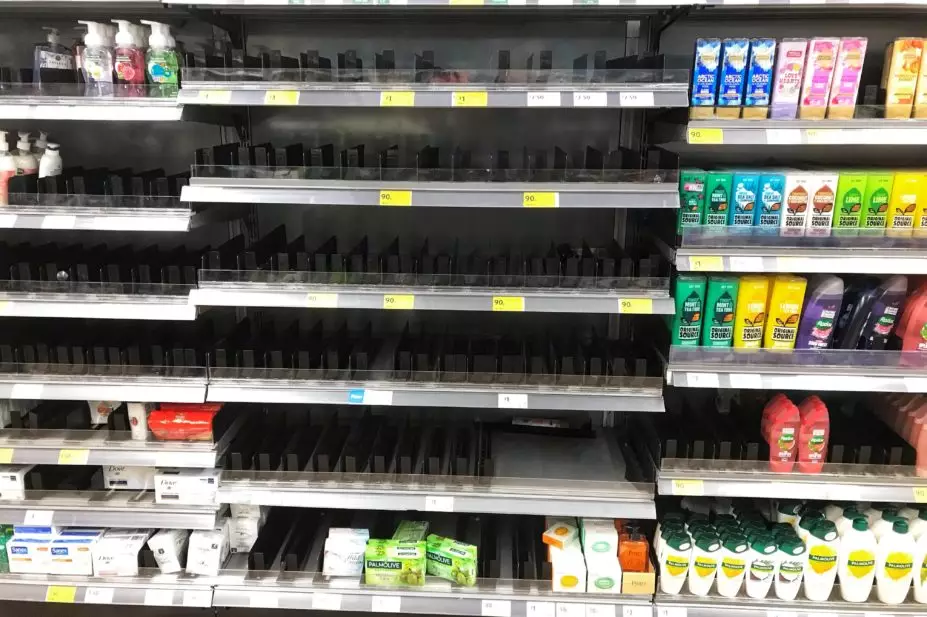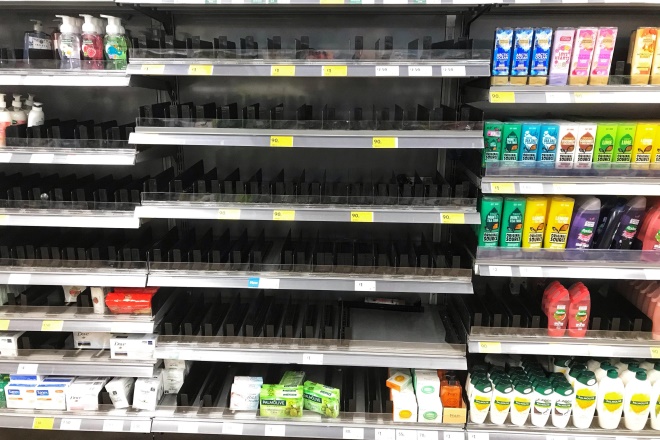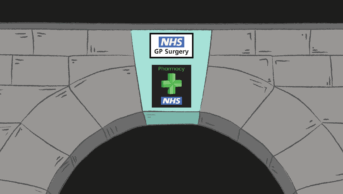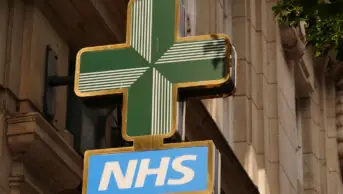
Steven May / StockimoNews / Alamy Stock Photo
Open access article
The Royal Pharmaceutical Society has made this article free to access in order to help healthcare professionals stay informed about an issue of national importance.
To learn more about coronavirus, please visit: https://www.rpharms.com/resources/pharmacy-guides/wuhan-novel-coronavirus

Source: Steven May / StockimoNews / Alamy Stock Photo
The government has already put export bans on the certain treatments to ensure adequate supplies as the coronavirus pandemic takes hold of medicine stocks
The UK government has moved from the “containment” phase to the “delay” phase of its strategy to combat the coronavirus (COVID-19) pandemic.
Currently, anyone with a high temperature or a new, continuous cough is instructed to self-isolate for at least seven days and any individuals in the household will now be asked to self-isolate for 14 days from that moment as well. Everyone, and those over 70 years or with certain long-term conditions in particular, have been warned to limit their social contact.
A large number of people will now be self-isolating and unable to work, go shopping or pick up their medicines. The impact of the COVID-19 pandemic on the UK population will be profound.
With so many people asked to self-isolate, it will be enormously difficult to keep community pharmacies and dispensaries functioning
Pharmacists are on the front line of all this. In the community, they already are playing a vital public health role in informing and signposting worried members of the public, and this will become even more important if a wider shutdown — as has happened in Italy — leaves them as the only NHS presence on the high street. Their medicines supply role will become even more difficult, with price hikes for common drugs, such as paracetamol, already a problem. Demands for medicine deliveries will increase.
In hospital, pharmacists are central to the treatment of patients with the disease. The UK government has said that it is currently assessing stocks of “mitigating treatments” and it has already put export bans on the antiviral treatments opinavir/ritonavir and chloroquine phosphate to ensure adequate supplies.
However, it will be enormously difficult for pharmacies and dispensaries to ensure adequate staffing and keep functioning. Discussions are ongoing with the government about how to support pharmacies, but there are some emergency measures that could be put in place immediately to help. Here are some of the more pressing problems.
The government has said it will ramp up testing for the virus, but this must involve a fast-track system that prioritises testing for all healthcare professionals. This is essential to reduce anxiety and enable pharmacists and others with symptoms to protect their families or get back to work as quickly as possible. Adequate amounts of personal protective equipment — such as gloves, aprons and masks — for all pharmacy staff must be delivered immediately.
The NHS must also signal much greater flexibility during this pandemic period. For instance, all pharmacists should be given the assurance that their indemnity cover will be guaranteed by the NHS so that they can work at an unfamiliar pharmacy to keep it operational. The National Pharmacy Association has suggested a number of other contingency measures, including original pack dispensing, to help pharmacists meet demand for their time. Performance management and targets should be stood down.
Pharmacies are also likely to require much greater freedom to close for short periods. The requirement to seek consent from the NHS should be removed temporarily, so that pharmacies can, for short periods and at their own discretion, shut their doors to ensure that the most vulnerable patients receive their medicines.
In addition, there must be emergency funding made available for pharmacy deliveries for those self-isolating who are not able to rely on a friend or relative to collect their medicines.
Over the next few weeks, our willingness to work together will be tested. This includes the way the NHS runs in a public health emergency, such as in the case of COVID-19, and how it supports those who work in it.
We urge those in power to look pragmatically at what they can do to support pharmacists in what will be a defining moment for the health service and those who rely on it.


